OC Rescue Mission Promotes Faith-Based Recovery
“I was a heroin addict. I got involved in gangs. With the grace of God all that has changed. It’s just me and my family now.” 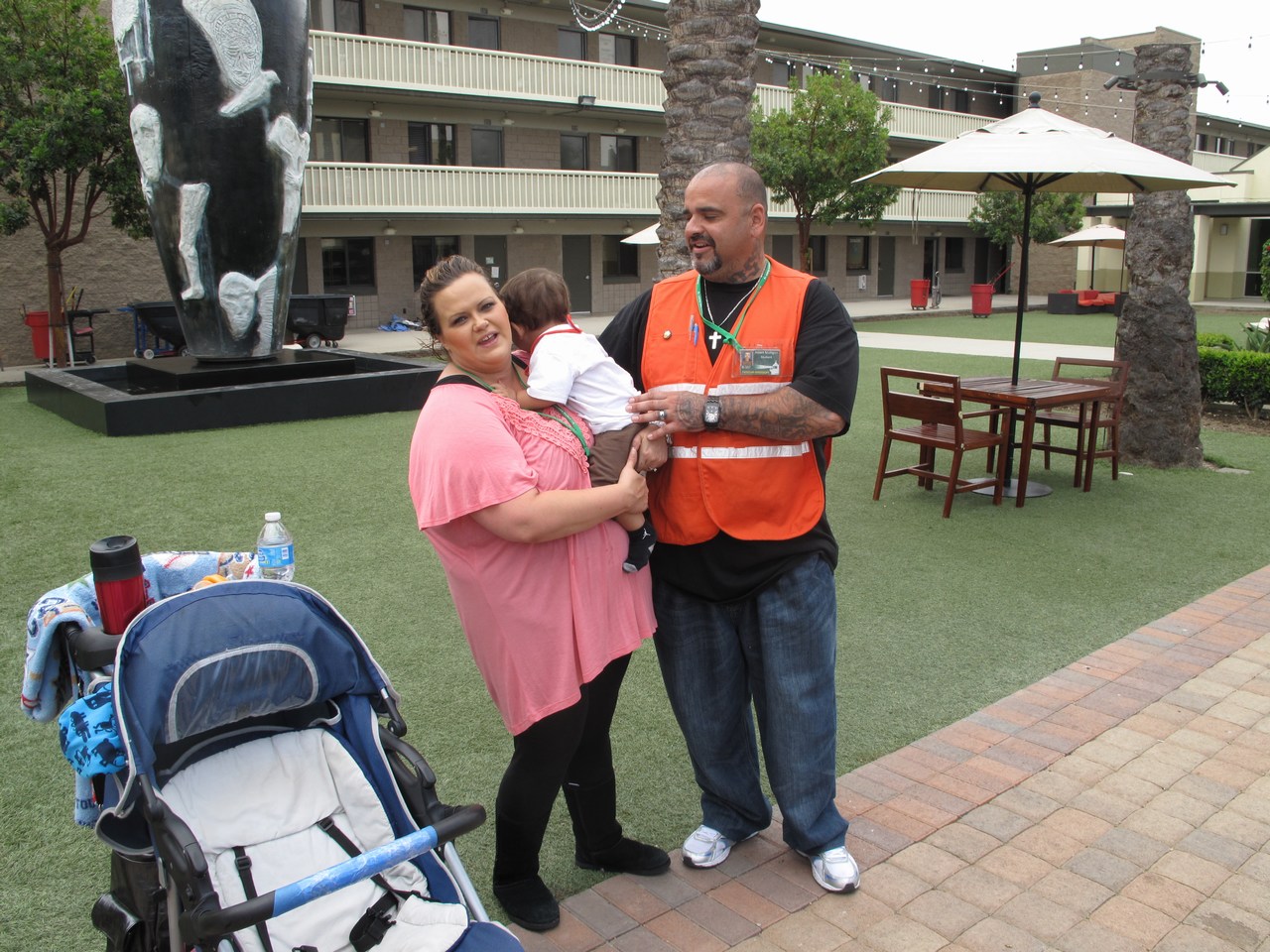 Albert Mulligan’s addictions had fueled a decades-long existence through Orange County jails and state prison when he reached his bottom – overdosed on heroin and clinging to life on a bathroom floor. “I didn’t want to be like my father,” said Mulligan, who was on probation with a wife who was about to give birth. “I knew something had to change.” In a last-ditch effort to save Mulligan from himself, his probation officer told him about the Orange County Rescue Mission, a faith-based living facility where turning one’s life over to Christ is a central part of rehabilitative programming. Orange County probation officials realize that faith-based programs aren’t for everyone, but could be effective choices for those for whom faith and religion are important. “They reached out to us for inclusion,” said Sue DeLacy, the director of the OC Probation Department’s Postrelease Community Supervision division. “A place like this is an available resource. We can’t make them go (to a faith-based program), but it’s an option.” As counties search for evidence-based programs to rehabilitate AB 109 offenders, some community-based and faith-based organizations are working to get noticed. Groups such as PICO California, a congregation-based community organizing network are hoping that churches can be a part of the solution.
Albert Mulligan’s addictions had fueled a decades-long existence through Orange County jails and state prison when he reached his bottom – overdosed on heroin and clinging to life on a bathroom floor. “I didn’t want to be like my father,” said Mulligan, who was on probation with a wife who was about to give birth. “I knew something had to change.” In a last-ditch effort to save Mulligan from himself, his probation officer told him about the Orange County Rescue Mission, a faith-based living facility where turning one’s life over to Christ is a central part of rehabilitative programming. Orange County probation officials realize that faith-based programs aren’t for everyone, but could be effective choices for those for whom faith and religion are important. “They reached out to us for inclusion,” said Sue DeLacy, the director of the OC Probation Department’s Postrelease Community Supervision division. “A place like this is an available resource. We can’t make them go (to a faith-based program), but it’s an option.” As counties search for evidence-based programs to rehabilitate AB 109 offenders, some community-based and faith-based organizations are working to get noticed. Groups such as PICO California, a congregation-based community organizing network are hoping that churches can be a part of the solution. 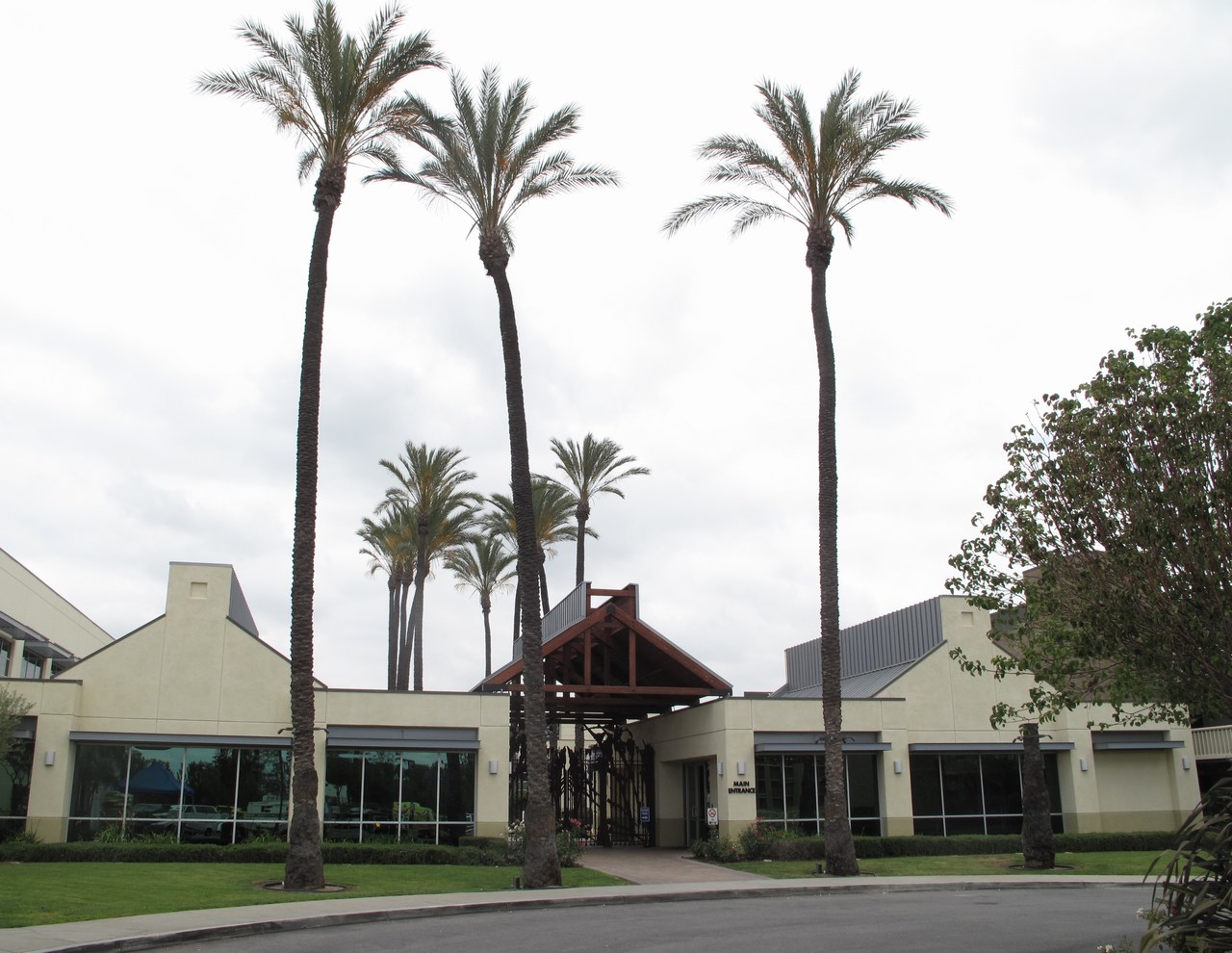 Those who opt to go to the Orange County Rescue Mission and are accepted will find a 5.1 acre oasis on what once was a Marine Corps blimp base on the outskirts of Tustin. The Mission, with a $9.4 million budget completely funded by private donations, can accommodate 192 people, including families, who need housing and/or intensive in-patient treatment for substance abuse. Towering palm trees form a welcoming entrance to an impeccably manicured courtyard maintained by the program’s newest residents. The cafeteria, with a modern, industrial kitchen, has the look and feel of a high-end chain restaurant – because it was designed by Cheesecake Factory, a supporter of the Mission’s work. The OCRM has three other sites across Southern California, including a 142-acre ranch near Temecula. Residents live there at no cost as long as they continue to meet programming and spiritual growth requirements, and work in an assigned campus job. In the later phases of the program, when residents gain employment outside of the facility, they must pay $125 a week for room and board. It can take from nine months to two years for someone to complete the programs. About 30 percent of the residents are on parole or probation.
Those who opt to go to the Orange County Rescue Mission and are accepted will find a 5.1 acre oasis on what once was a Marine Corps blimp base on the outskirts of Tustin. The Mission, with a $9.4 million budget completely funded by private donations, can accommodate 192 people, including families, who need housing and/or intensive in-patient treatment for substance abuse. Towering palm trees form a welcoming entrance to an impeccably manicured courtyard maintained by the program’s newest residents. The cafeteria, with a modern, industrial kitchen, has the look and feel of a high-end chain restaurant – because it was designed by Cheesecake Factory, a supporter of the Mission’s work. The OCRM has three other sites across Southern California, including a 142-acre ranch near Temecula. Residents live there at no cost as long as they continue to meet programming and spiritual growth requirements, and work in an assigned campus job. In the later phases of the program, when residents gain employment outside of the facility, they must pay $125 a week for room and board. It can take from nine months to two years for someone to complete the programs. About 30 percent of the residents are on parole or probation. 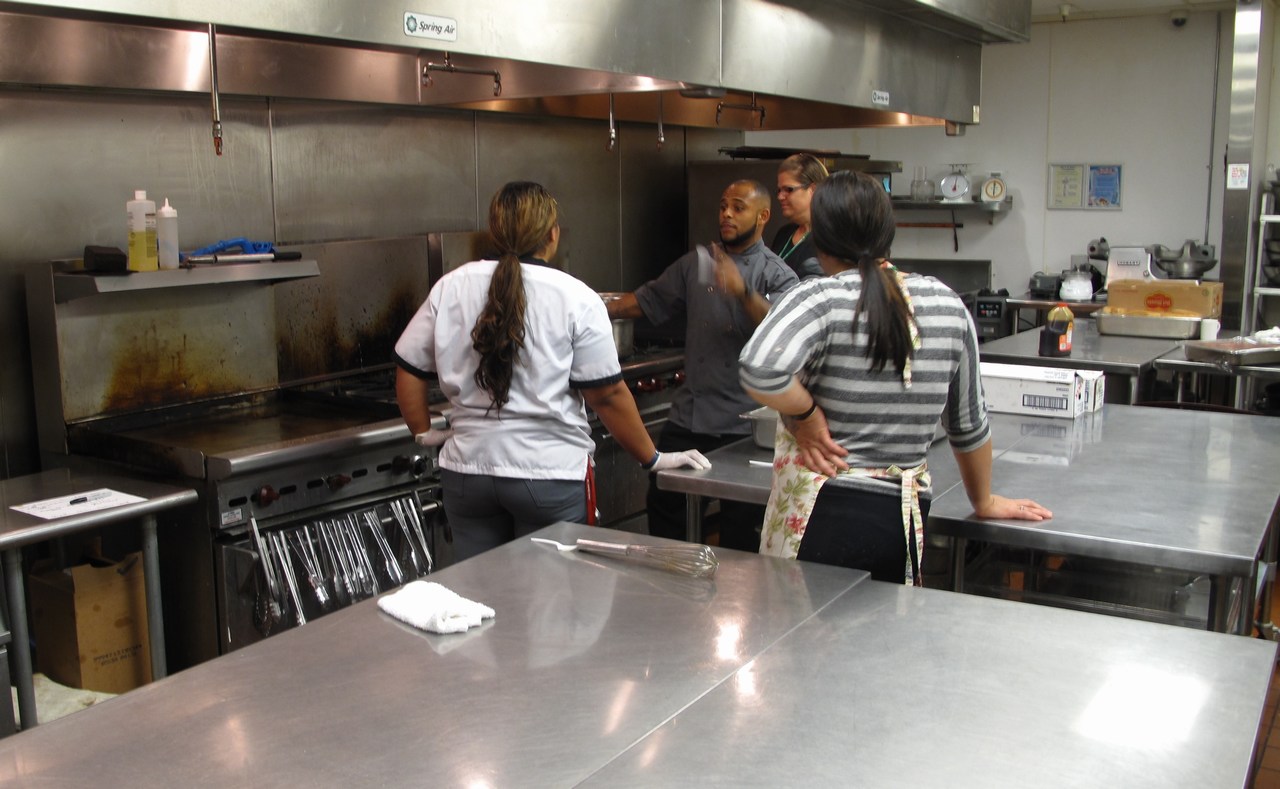 “We have court-suggested residents, but not court ordered,” said Doug Hellman, outreach and admissions manager – and a recovering meth addict who was reformed by the Mission’s programs. “Bible study and devotions are a major, and required, portion of our program.” Residents are assigned case managers to help set goals. Medical professionals in the Hurtt Family Healthy Clinic will screen residents for medical benefit eligibility. Volunteer work responsibilities begin immediately. Residents must pass performance views to graduate to the next level, where more responsibilities and freedoms are earned. “Spiritual growth” is a key part of the process. The rules are strictly enforced. Fraternization among residents of the opposite sex is not allowed, and neither are coffee after breakfast or energy drinks at any time. Residents are subject to drug tests and breathalyzers whenever they leave campus and randomly throughout their stay. They can have tattoos removed, and can’t get new ones while residents of the Mission.
“We have court-suggested residents, but not court ordered,” said Doug Hellman, outreach and admissions manager – and a recovering meth addict who was reformed by the Mission’s programs. “Bible study and devotions are a major, and required, portion of our program.” Residents are assigned case managers to help set goals. Medical professionals in the Hurtt Family Healthy Clinic will screen residents for medical benefit eligibility. Volunteer work responsibilities begin immediately. Residents must pass performance views to graduate to the next level, where more responsibilities and freedoms are earned. “Spiritual growth” is a key part of the process. The rules are strictly enforced. Fraternization among residents of the opposite sex is not allowed, and neither are coffee after breakfast or energy drinks at any time. Residents are subject to drug tests and breathalyzers whenever they leave campus and randomly throughout their stay. They can have tattoos removed, and can’t get new ones while residents of the Mission. 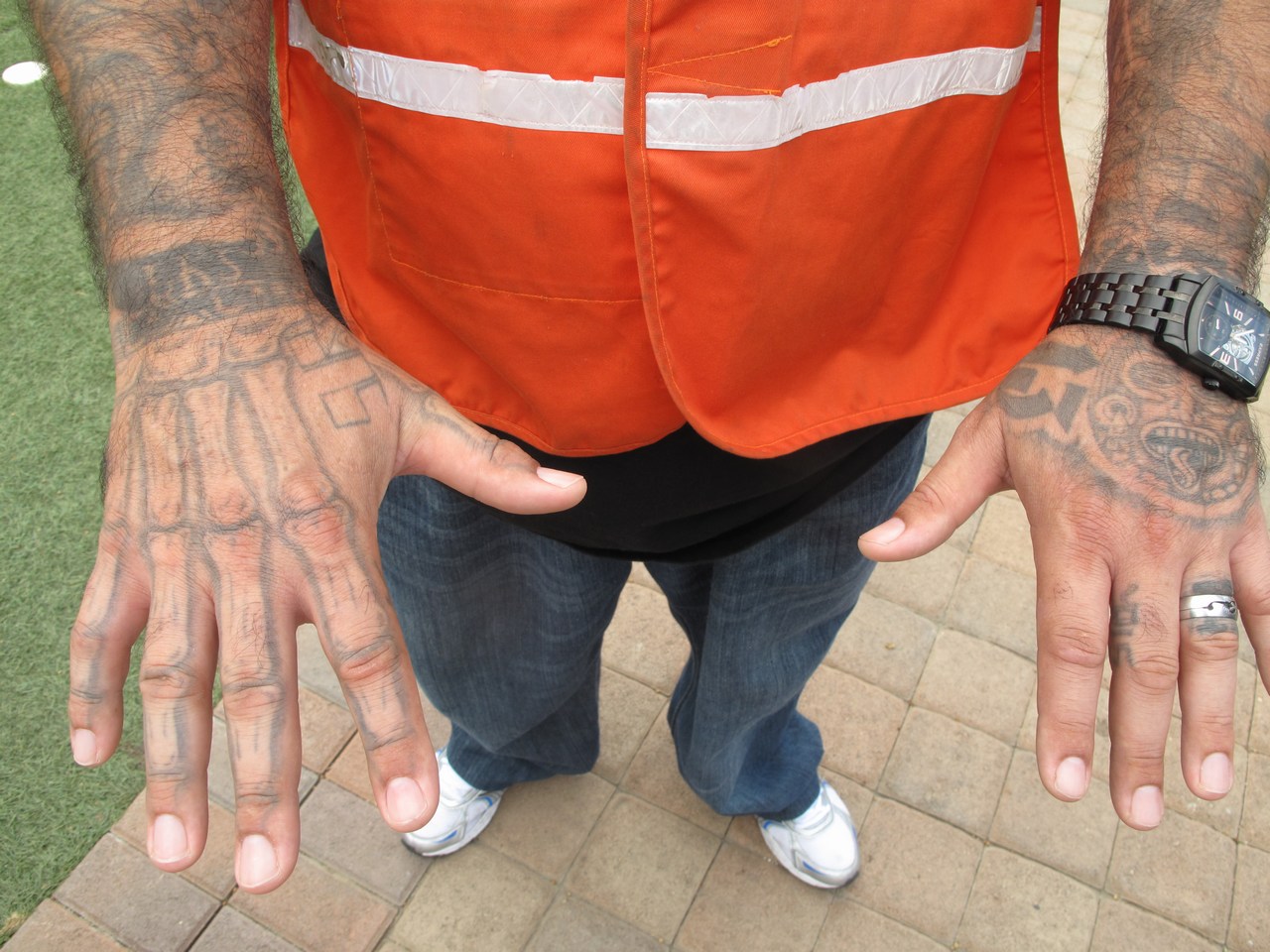 Residents learn to use computers, write resumes and how to dress for and act on a job interview. At the mission they can earn certificates in fork lift operation and food safety. A sign in the job center offers inspiration: “Some people dream of success … while others work hard at it.” To make their residents attractive to “felon-friendly” employers, the Mission subsidizes half of their salaries for the first three months. Officials say 96 percent of their residents find jobs. We teach them to fly on their own,” Hellman said. “It’s not a hard program; it’s just a long program.” Erica Meloyer, a 38-year-old single mother on probation, asked to be assigned to the Mission program when she came out of four months of court-ordered in-patient drug treatment. She’ll graduate this summer. “This is a year of completion for me. I’m about to be off probation for the first time in my adult life. I’ve never experienced that,” she said. Meloyer said she worked as an escort to support her drug addiction after spending time in juvenile custody for petty theft. She said she begged to be accepted at the Mission after rehab because she knew she needed the structured environment. “This place is amazing. I’ve never been in a program before,” she said. “I tried hard to get in here and fought for what I wanted. If you are really ready to change you’ll make sure you are not the same person when you leave that you came in as. I’m glad I’m here; I put all of my trust in God.”
Residents learn to use computers, write resumes and how to dress for and act on a job interview. At the mission they can earn certificates in fork lift operation and food safety. A sign in the job center offers inspiration: “Some people dream of success … while others work hard at it.” To make their residents attractive to “felon-friendly” employers, the Mission subsidizes half of their salaries for the first three months. Officials say 96 percent of their residents find jobs. We teach them to fly on their own,” Hellman said. “It’s not a hard program; it’s just a long program.” Erica Meloyer, a 38-year-old single mother on probation, asked to be assigned to the Mission program when she came out of four months of court-ordered in-patient drug treatment. She’ll graduate this summer. “This is a year of completion for me. I’m about to be off probation for the first time in my adult life. I’ve never experienced that,” she said. Meloyer said she worked as an escort to support her drug addiction after spending time in juvenile custody for petty theft. She said she begged to be accepted at the Mission after rehab because she knew she needed the structured environment. “This place is amazing. I’ve never been in a program before,” she said. “I tried hard to get in here and fought for what I wanted. If you are really ready to change you’ll make sure you are not the same person when you leave that you came in as. I’m glad I’m here; I put all of my trust in God.” 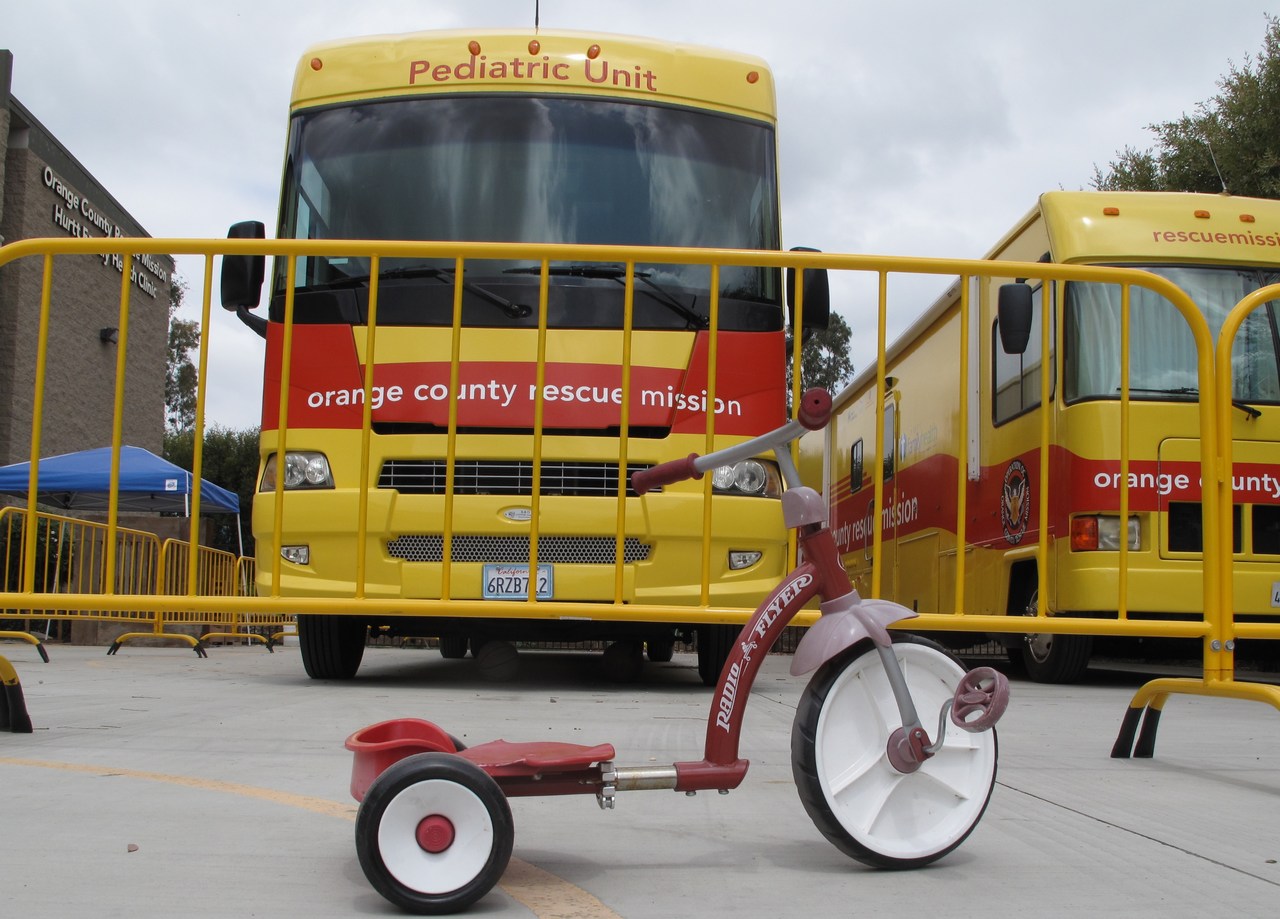
 Albert Mulligan’s addictions had fueled a decades-long existence through Orange County jails and state prison when he reached his bottom – overdosed on heroin and clinging to life on a bathroom floor. “I didn’t want to be like my father,” said Mulligan, who was on probation with a wife who was about to give birth. “I knew something had to change.” In a last-ditch effort to save Mulligan from himself, his probation officer told him about the Orange County Rescue Mission, a faith-based living facility where turning one’s life over to Christ is a central part of rehabilitative programming. Orange County probation officials realize that faith-based programs aren’t for everyone, but could be effective choices for those for whom faith and religion are important. “They reached out to us for inclusion,” said Sue DeLacy, the director of the OC Probation Department’s Postrelease Community Supervision division. “A place like this is an available resource. We can’t make them go (to a faith-based program), but it’s an option.” As counties search for evidence-based programs to rehabilitate AB 109 offenders, some community-based and faith-based organizations are working to get noticed. Groups such as PICO California, a congregation-based community organizing network are hoping that churches can be a part of the solution.
Albert Mulligan’s addictions had fueled a decades-long existence through Orange County jails and state prison when he reached his bottom – overdosed on heroin and clinging to life on a bathroom floor. “I didn’t want to be like my father,” said Mulligan, who was on probation with a wife who was about to give birth. “I knew something had to change.” In a last-ditch effort to save Mulligan from himself, his probation officer told him about the Orange County Rescue Mission, a faith-based living facility where turning one’s life over to Christ is a central part of rehabilitative programming. Orange County probation officials realize that faith-based programs aren’t for everyone, but could be effective choices for those for whom faith and religion are important. “They reached out to us for inclusion,” said Sue DeLacy, the director of the OC Probation Department’s Postrelease Community Supervision division. “A place like this is an available resource. We can’t make them go (to a faith-based program), but it’s an option.” As counties search for evidence-based programs to rehabilitate AB 109 offenders, some community-based and faith-based organizations are working to get noticed. Groups such as PICO California, a congregation-based community organizing network are hoping that churches can be a part of the solution.  Those who opt to go to the Orange County Rescue Mission and are accepted will find a 5.1 acre oasis on what once was a Marine Corps blimp base on the outskirts of Tustin. The Mission, with a $9.4 million budget completely funded by private donations, can accommodate 192 people, including families, who need housing and/or intensive in-patient treatment for substance abuse. Towering palm trees form a welcoming entrance to an impeccably manicured courtyard maintained by the program’s newest residents. The cafeteria, with a modern, industrial kitchen, has the look and feel of a high-end chain restaurant – because it was designed by Cheesecake Factory, a supporter of the Mission’s work. The OCRM has three other sites across Southern California, including a 142-acre ranch near Temecula. Residents live there at no cost as long as they continue to meet programming and spiritual growth requirements, and work in an assigned campus job. In the later phases of the program, when residents gain employment outside of the facility, they must pay $125 a week for room and board. It can take from nine months to two years for someone to complete the programs. About 30 percent of the residents are on parole or probation.
Those who opt to go to the Orange County Rescue Mission and are accepted will find a 5.1 acre oasis on what once was a Marine Corps blimp base on the outskirts of Tustin. The Mission, with a $9.4 million budget completely funded by private donations, can accommodate 192 people, including families, who need housing and/or intensive in-patient treatment for substance abuse. Towering palm trees form a welcoming entrance to an impeccably manicured courtyard maintained by the program’s newest residents. The cafeteria, with a modern, industrial kitchen, has the look and feel of a high-end chain restaurant – because it was designed by Cheesecake Factory, a supporter of the Mission’s work. The OCRM has three other sites across Southern California, including a 142-acre ranch near Temecula. Residents live there at no cost as long as they continue to meet programming and spiritual growth requirements, and work in an assigned campus job. In the later phases of the program, when residents gain employment outside of the facility, they must pay $125 a week for room and board. It can take from nine months to two years for someone to complete the programs. About 30 percent of the residents are on parole or probation.  “We have court-suggested residents, but not court ordered,” said Doug Hellman, outreach and admissions manager – and a recovering meth addict who was reformed by the Mission’s programs. “Bible study and devotions are a major, and required, portion of our program.” Residents are assigned case managers to help set goals. Medical professionals in the Hurtt Family Healthy Clinic will screen residents for medical benefit eligibility. Volunteer work responsibilities begin immediately. Residents must pass performance views to graduate to the next level, where more responsibilities and freedoms are earned. “Spiritual growth” is a key part of the process. The rules are strictly enforced. Fraternization among residents of the opposite sex is not allowed, and neither are coffee after breakfast or energy drinks at any time. Residents are subject to drug tests and breathalyzers whenever they leave campus and randomly throughout their stay. They can have tattoos removed, and can’t get new ones while residents of the Mission.
“We have court-suggested residents, but not court ordered,” said Doug Hellman, outreach and admissions manager – and a recovering meth addict who was reformed by the Mission’s programs. “Bible study and devotions are a major, and required, portion of our program.” Residents are assigned case managers to help set goals. Medical professionals in the Hurtt Family Healthy Clinic will screen residents for medical benefit eligibility. Volunteer work responsibilities begin immediately. Residents must pass performance views to graduate to the next level, where more responsibilities and freedoms are earned. “Spiritual growth” is a key part of the process. The rules are strictly enforced. Fraternization among residents of the opposite sex is not allowed, and neither are coffee after breakfast or energy drinks at any time. Residents are subject to drug tests and breathalyzers whenever they leave campus and randomly throughout their stay. They can have tattoos removed, and can’t get new ones while residents of the Mission.  Residents learn to use computers, write resumes and how to dress for and act on a job interview. At the mission they can earn certificates in fork lift operation and food safety. A sign in the job center offers inspiration: “Some people dream of success … while others work hard at it.” To make their residents attractive to “felon-friendly” employers, the Mission subsidizes half of their salaries for the first three months. Officials say 96 percent of their residents find jobs. We teach them to fly on their own,” Hellman said. “It’s not a hard program; it’s just a long program.” Erica Meloyer, a 38-year-old single mother on probation, asked to be assigned to the Mission program when she came out of four months of court-ordered in-patient drug treatment. She’ll graduate this summer. “This is a year of completion for me. I’m about to be off probation for the first time in my adult life. I’ve never experienced that,” she said. Meloyer said she worked as an escort to support her drug addiction after spending time in juvenile custody for petty theft. She said she begged to be accepted at the Mission after rehab because she knew she needed the structured environment. “This place is amazing. I’ve never been in a program before,” she said. “I tried hard to get in here and fought for what I wanted. If you are really ready to change you’ll make sure you are not the same person when you leave that you came in as. I’m glad I’m here; I put all of my trust in God.”
Residents learn to use computers, write resumes and how to dress for and act on a job interview. At the mission they can earn certificates in fork lift operation and food safety. A sign in the job center offers inspiration: “Some people dream of success … while others work hard at it.” To make their residents attractive to “felon-friendly” employers, the Mission subsidizes half of their salaries for the first three months. Officials say 96 percent of their residents find jobs. We teach them to fly on their own,” Hellman said. “It’s not a hard program; it’s just a long program.” Erica Meloyer, a 38-year-old single mother on probation, asked to be assigned to the Mission program when she came out of four months of court-ordered in-patient drug treatment. She’ll graduate this summer. “This is a year of completion for me. I’m about to be off probation for the first time in my adult life. I’ve never experienced that,” she said. Meloyer said she worked as an escort to support her drug addiction after spending time in juvenile custody for petty theft. She said she begged to be accepted at the Mission after rehab because she knew she needed the structured environment. “This place is amazing. I’ve never been in a program before,” she said. “I tried hard to get in here and fought for what I wanted. If you are really ready to change you’ll make sure you are not the same person when you leave that you came in as. I’m glad I’m here; I put all of my trust in God.” 

